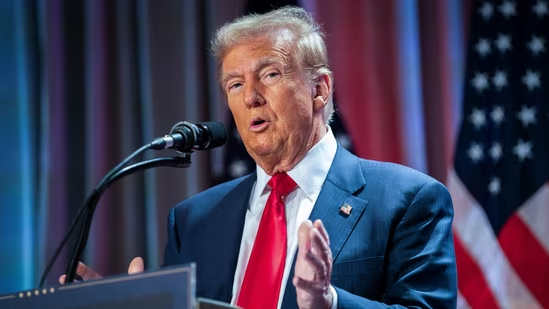Summary: Canada’s Finance Minister has resigned following mounting trade tensions with the United States, particularly over tariffs imposed by President Donald Trump’s administration. The resignation underscores growing challenges for Prime Minister Justin Trudeau’s government as it navigates a strained economic relationship with its largest trading partner.
Minister Resigns Amid Tariff Strain
The sudden departure of Canada’s Finance Minister has sent ripples through both domestic and international political circles. The resignation comes at a critical juncture, with the Trump administration’s tariffs on Canadian goods fueling tensions between the two nations. Sources close to the matter suggest the decision was influenced by the frustration of ongoing economic disputes that have plagued U.S.-Canada relations since Trump took office.
Prime Minister Justin Trudeau expressed regret over the resignation, acknowledging the significant role the minister played during a challenging period for Canada’s economy. “We remain committed to protecting Canadian businesses and workers, despite these difficult trade policies,” Trudeau said in a brief statement.
Economic Impact on Canada
The U.S.-imposed tariffs have notably affected key sectors of the Canadian economy, including steel, aluminum, and agriculture. Industry leaders have voiced concerns over declining revenues and job losses as a result of these measures. Canada has also retaliated with counter-tariffs, exacerbating the trade standoff.
Economic analysts warn that the minister’s resignation could lead to uncertainty in Canada’s financial markets and complicate ongoing efforts to resolve trade disputes. “The departure of a senior figure adds pressure on the government to stabilize its economic strategy while managing worsening trade relations with the United States,” said a Toronto-based financial expert.
Political Repercussions for Trudeau’s Government
The resignation poses a significant political test for Trudeau’s administration ahead of critical discussions with U.S. officials. Trudeau’s ability to address domestic frustrations over economic pressures may influence public perception and his government’s stability.
Political analysts suggest that the minister’s departure could lead to a cabinet reshuffle and a shift in Canada’s approach to trade negotiations. The opposition has criticized Trudeau’s handling of the situation, calling for a stronger stance against U.S. tariffs and more support for affected industries.
Background and Implications
The current tensions date back to Trump’s protectionist trade policies, which have strained relations with several U.S. allies. Since imposing tariffs on Canadian steel and aluminum, the Trump administration has defended its decisions as measures to protect American industries.
Canada’s response, including countermeasures and efforts to engage in trade negotiations, reflects the delicate balance Trudeau’s government must strike between defending national economic interests and maintaining strong ties with its southern neighbor.
The finance minister’s resignation adds a new layer of complexity to these challenges. Moving forward, the Trudeau government faces pressure to appoint a successor capable of restoring confidence, stabilizing trade relations, and addressing domestic economic concerns.
While the full implications of this resignation remain to be seen, it highlights the far-reaching impact of international trade disputes on political leadership and economic policy.


